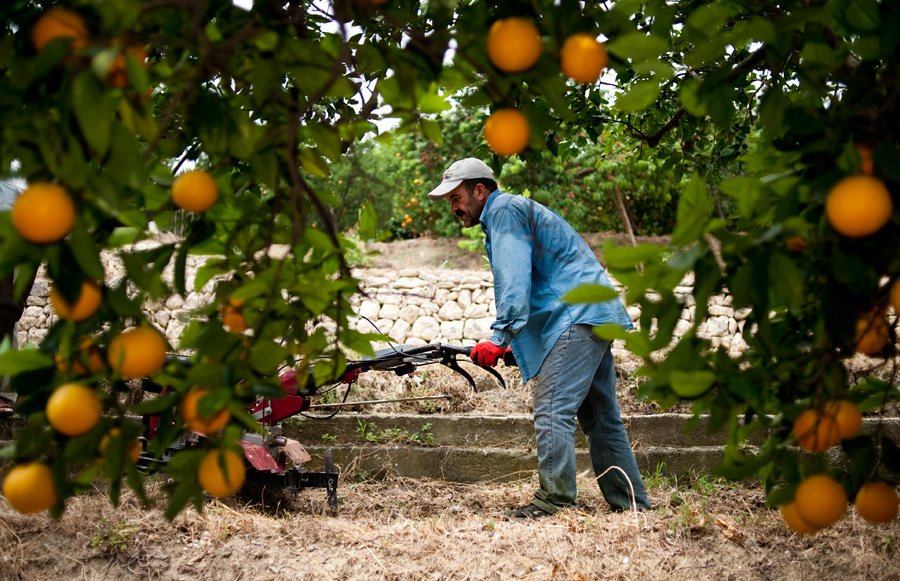 Harutyun plows his orchard.
Harutyun plows his orchard.
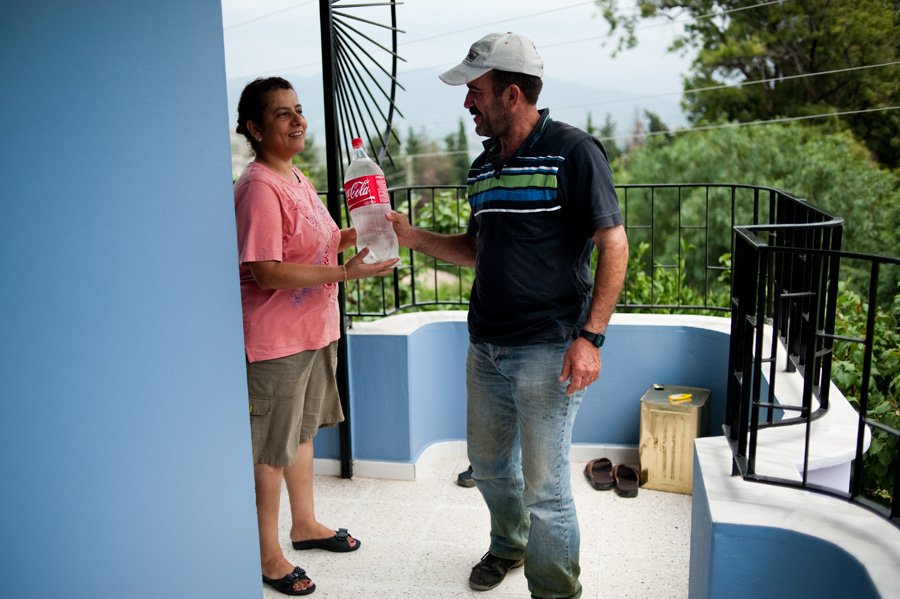 Janet gives her husband a bottle of cold water to take back to the orchard.
Janet gives her husband a bottle of cold water to take back to the orchard.
It is a Tuesday evening, and the hot weather is mitigated by a cool breeze. From the balcony of the Kuş house, the lights of Samandaǧ wink in the darkening sky.
Janet Kuş, 45, busies herself in the kitchen. She spoons bulgur, a kind of wheat rice, into a bowl then turns to pile homemade bread onto a plate. She carries both to the long table set outside and returns to the kitchen to prepare a salad.
Her husband, Harutyun, 51, and her youngest son, Aren, 14, sit at the table with her in-laws, Sirop and Siruhi. They wait for her to join them before they distribute the skewers of tender wild boar meat and well-packed meatballs.
The family clinks glasses – some containing water, some cola and some rakı, a Turkish alcohol – then digs in. Each member periodically pauses in his or her eating to congratulate Janet on the good cooking.
“Health to your hands,” they say, using a Turkish expression to thank her for a well-prepared meal.
“Bon appetit and welcome,” she responds.
The family begins to chatter, though Janet and Harutyun remain relatively quiet, tired from the day’s work. Janet leans back in her chair, her pink sweater pulled around her and tucked under her crossed arms. Her hair is tied back in a ponytail, and her unpainted face is relaxed. When she starts to clear the table, her husband looks up at her to say thank you. He watches her as she leaves the room.
The two have been married for 27 years and have three children, two boys and a girl. They met, Harutyun says, in İskenderun, Janet’s home town, in 1985. Harutyun had just started work at his brother’s recording studio when he met the attractive secretary. Two years later, when the studio closed, Harutyun switched to crafting jewelry.
“I was really good at it, actually.”
When asked if he ever made jewelry for his wife, Harutyun blushes, and the tips of ears turn red. He looks down at the table before shyly admitting yes. His son, Aren, laughs, teasing his father for his embarrassment. And when Janet emerges from the kitchen once more after clearing the plates, a silver necklace peeks out from underneath her sweater.
Although he enjoyed his craft, Harutyun and Janet floated around southern Turkey until landing in Vakıflı.
“We came back to our real selves,” Harutyun says.
For Janet, however, the transition wasn’t as simple. She was an outsider in every way: she was Turkish, an Alevi Muslim and new to the village.
“Everyone was a stranger,” she says.
She gradually grew used to her new life and slowly made friends. At age 20, she decided to take a final leap and convert to Christianity.
Like her move to the village, her conversion was a challenge. She had to file a court case at the time in order to be identified as Christian. Vakıflı’s headman, and one of her new friends, testified for her. When the judge asked if she was converting by her own will, she replied, “My husband is an Armenian Christian, and I would like to be one, too.”
Her decision was easy, she says.
“Love is above all else.”
Then Janet stands up to go back to the kitchen to prepare tea and fruit. When she passes by her husband, they smile at each other, and she reaches out a hand to stroke it down his arm.
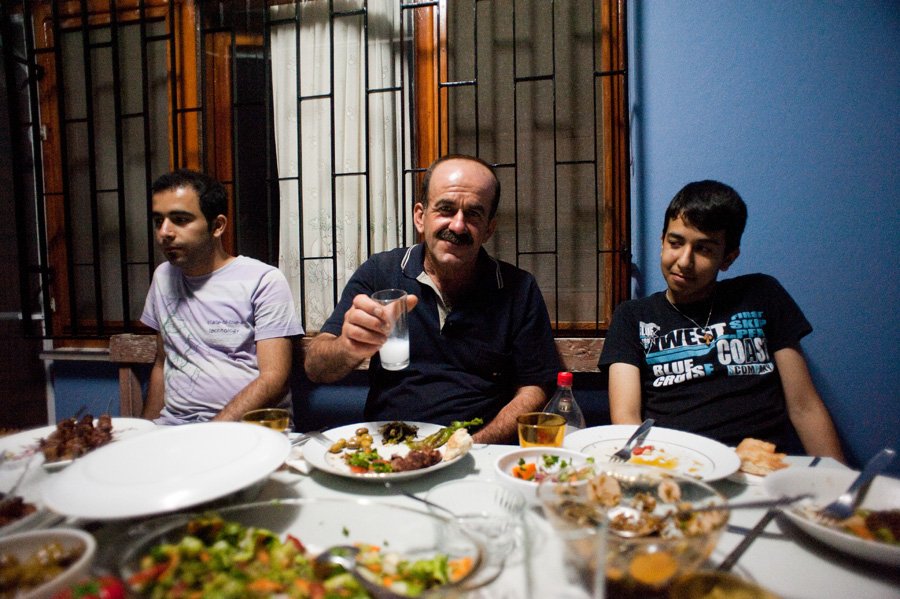 Sitting between his sons, Sirop (left) and Aren (right), Harutyun Kuş holds up a glass of rakı, anise-flavored liquor. Rakı, he says, gives him peace after a long day of work.
Sitting between his sons, Sirop (left) and Aren (right), Harutyun Kuş holds up a glass of rakı, anise-flavored liquor. Rakı, he says, gives him peace after a long day of work.
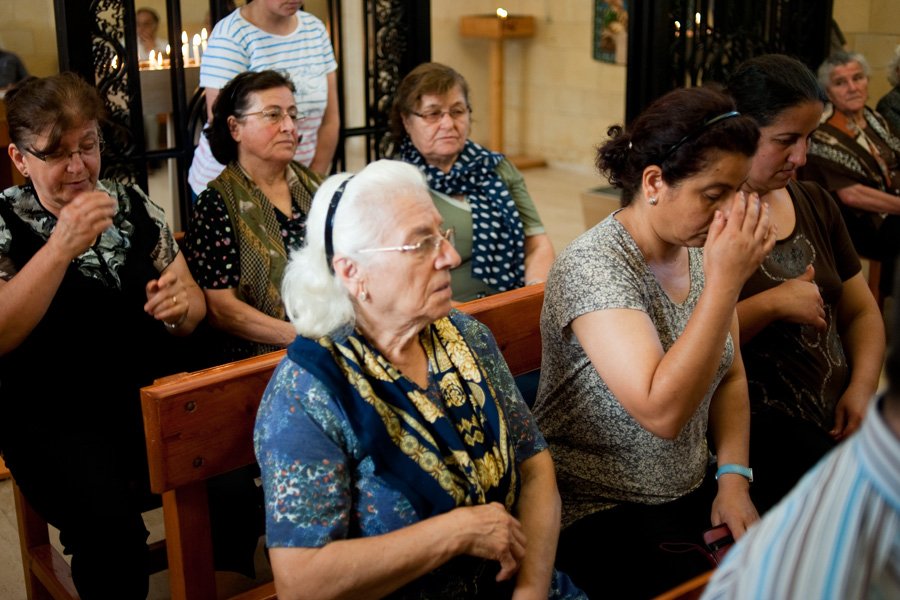 Janet Kuş, performing the sign of the cross, is seen among the women of Vakıflı.
Janet Kuş, performing the sign of the cross, is seen among the women of Vakıflı.
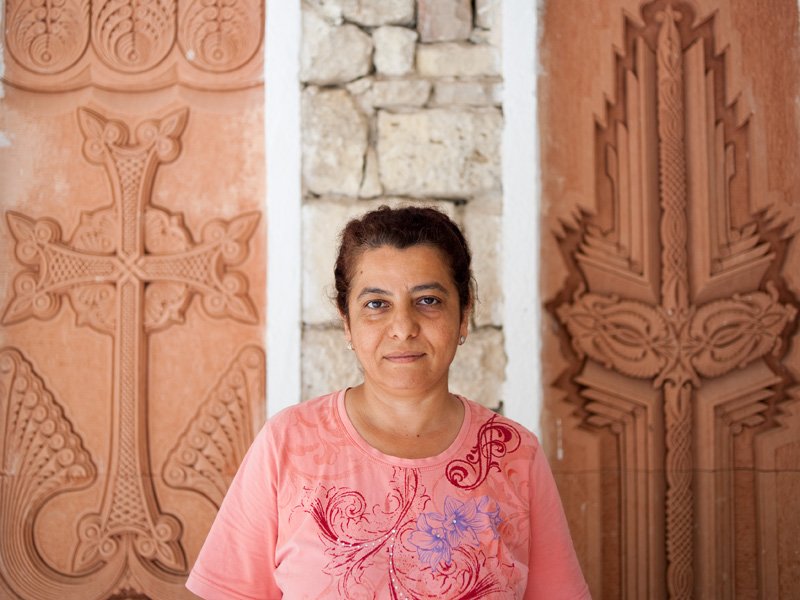 Janet Kuş, 45.
Janet Kuş, 45.